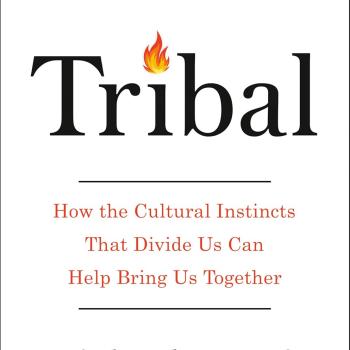
The Western church finds itself at a pivotal crossroads. With society becoming ever more individualistic, the church must grapple with the implications of this societal shift on its congregants, doctrines, and mission. The church, historically rooted in community and shared beliefs, faces challenges in maintaining its foundational values in an era where the individual reigns supreme.
Identity amid Individualism
Individualism is a double-edged sword. While it encourages personal responsibility and nurtures a direct relationship with God, it also skews perceptions of community, ethics, and theological interpretations. The consequence? A diluted understanding of one’s identity within the church and a possible detachment from our collective mission.
-
Emphasis on Personal Salvation
At the forefront of individualistic thought is the concept of a “personal Jesus.” While the notion of Jesus as a personal savior is doctrinally sound, there’s a danger of it overshadowing the broader, communal implications of Christ’s mission. The gospel’s reduction to a transaction between God and an individual inadvertently sidelines essential elements like social justice, community ethics, and global mission.
This “privatization” of faith has further consequences. It can limit believers from recognizing their role in societal change, leading to passive Christianity, not proactive discipleship.
-
The Community Disconnect
An unfortunate byproduct of individualism is its erosion of communal bonds. As autonomy becomes paramount, traditional community structures like churches find their relevance waning. Church becomes a weekly ritual rather than a lifestyle.
Instead of a collective of believers dedicated to mutual growth and support, churches risk devolving into mere service providers, catering to individual needs and preferences. This consumerist approach to faith is detrimental, fostering a transactional rather than a transformational relationship with God and fellow believers.
-
Ethical Repercussions for Churches
A subtle yet profound impact of individualism on the church is in the realm of ethics. Individualistic societies often prioritize personal, moral standards over collective ethics. Discussions shift from systemic issues (e.g., economic disparities, social inequalities) to personal behavioral topics. This limited view hinders the church from being a transformative social force, addressing root causes rather than just symptoms.
-
Theological Blind Spots
Individualism doesn’t just affect behavior; it impacts belief systems. The inclination towards selective theology is an alarming trend. Cherry-picking scriptures to affirm personal views neglects the Bible’s holistic message.
There’s a risk of creating an echo chamber, where challenging doctrines are sidelined in favor of more palatable, individual-centric teachings.
-
Cross-Cultural Limitations
In an era of global connectivity, churches should be at the forefront of cross-cultural engagement. However, individualism curtails this. By emphasizing personal spiritual experiences, believers often lack the impetus or framework to connect deeply with Christians from diverse backgrounds. This diminishes the richness of the global Christian experience and hampers the church’s universality.
More Holistic Churches
The solution is not to reject individualism entirely.
There are undeniable benefits to fostering personal responsibility and autonomy. Instead, the church must strike a balance. It’s about weaving individual experiences into a collective tapestry, creating a vibrant, interconnected community of believers.
For the Western church, this is a crucial moment for introspection. How can the church embrace the positives of individualism while mitigating its divisive effects? Can it redefine its role in identity formation, offering a more balanced, holistic view of faith that is both personal and communal?
By acknowledging these challenges and actively working to address them, the church not only preserves its foundational values but also evolves to meet the needs of its ever-changing congregation. The goal remains unchanged: to be a beacon of hope, unity, and transformation in a fragmented world.













